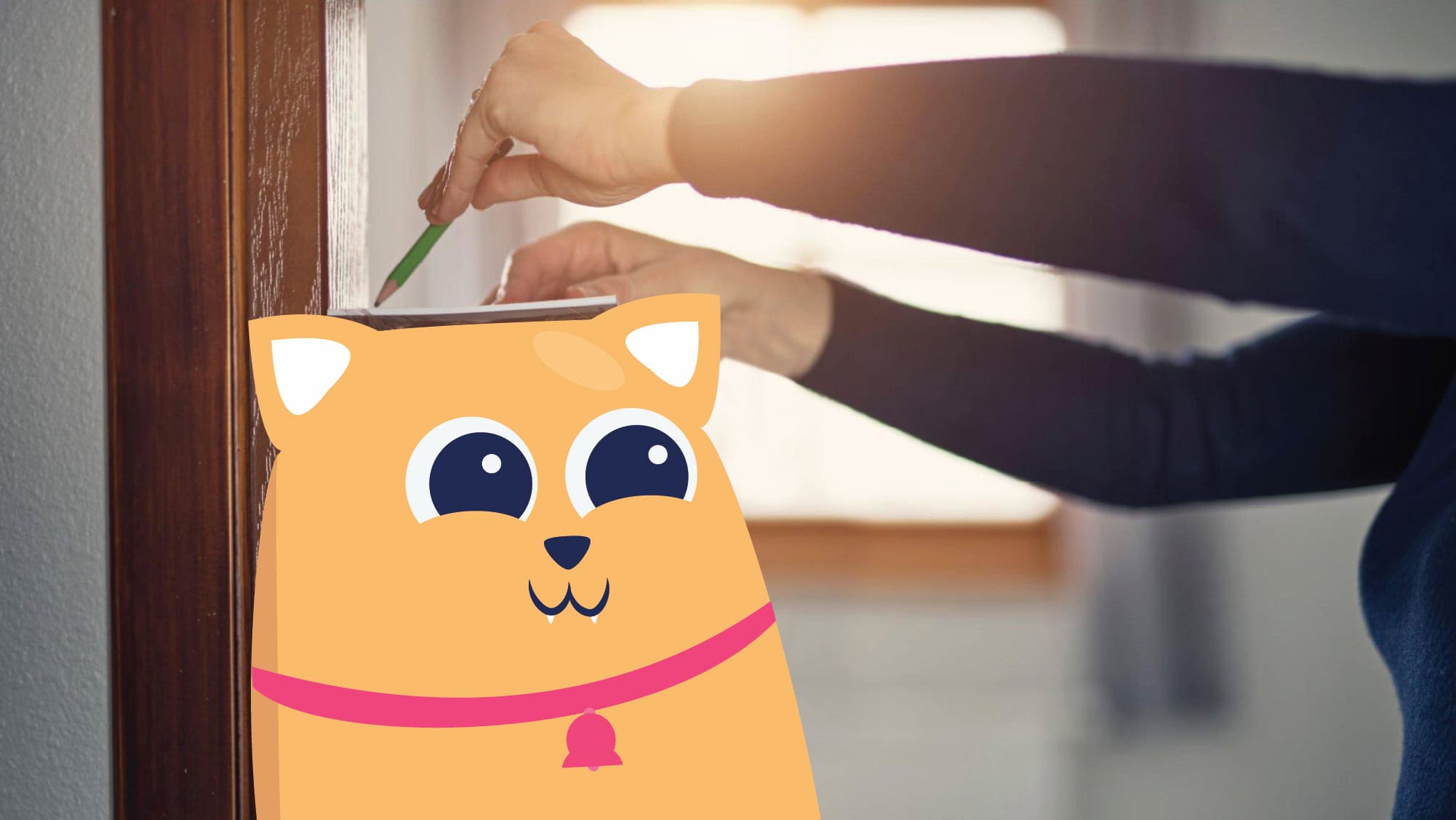Pet parents of kittens may be surprised to find out how short the kitten phase lasts! Unlike humans, kittens reach adulthood over a short time period, experiencing rapid growth during their first couple of months.
Are you curious about how long it will take for your kitten to grow? We’ve put together this handy guide so you can discover all about the different factors that affect a kitten’s growth stages, how long it takes for a kitten to grow, and how to properly feed a growing kitten.
Let’s dive in!
When Does a Kitten Stop Growing?
Typically, kittens cease growing between 6 to 12 months of age. While some might grow slowly until they’re 18 months, the pace is much reduced. It’s crucial to note that while physical growth might halt, weight gain can persist, especially in sedentary cats or those with unrestricted diets. Overweight cats face health risks, so it’s essential to consult a veterinarian about any weight concerns.
Use our growth calculator to estimate your kitten’s weight once they finish growing.
Factors Affecting Growth in Kittens
There are a number of factors that will affect your kitten’s development, such as level of exercise and nutrition. As a pet parent, it’s essential to make sure your kitten has everything they need to thrive, including regular checkups, kitten vaccinations, good nutrition, and more.
Scheduling kitten wellness checkups with a BetterVet veterinary doctor is one easy way to ensure you’re doing your part as a pet parent. During a wellness checkup (either in-home or through a telemedicine consult), your BetterVet veterinary doctor can help answer any questions you may have about your kitten’s growth and development.
Kitten Growth Milestones
One of the most exciting parts of being a kitten parent is watching your furry friend thrive and grow! The following kitten growth stages can give you an idea of what to expect:
- Weeks 1 through 3: Kittens open their eyes and ears.
- Weeks 3 through 5: Kittens begin to take their first steps and begin trying to use the litter box. Kittens can be introduced to solid food at the end of this growing stage.
- Weeks 6 through 8: Kittens begin playing often. Make sure to bring your cat for kitten vaccinations!
- Month 2 through 6: Kitten experiences rapid development, and lots of playtime.
- Month 6 through 12: Kitten growth continues but may begin to occur at a slower rate.
- After month 12: Your kitten is now an adult!
How to Feed a Growing Kitten
Growing kittens need a well-rounded diet that is high in protein in order to support their high energy levels. It’s important to feed your kitten a diet that is specific for kittens, to ensure he or she receives proper levels of protein, vitamins, and other nutrients. Ensuring proper nutrition is a vital component in caring for your kitten, so it’s important to consult with your veterinary doctor with any questions about feeding your growing kitten.
Kittens should eat kitten foodfor the first 10 to 12 months of their life. When your cat reaches this age, it’s recommended to transition from kitten to adult food. Once your cat reaches adulthood, their need for daily calories will decrease. For this reason, adult cat food is formulated with fewer calories than kitten food. During kitten wellness checkups, your veterinary doctor can help you determine your cat’s individual nutritional needs.
Related reading: How to Take Care of a Cat: 7 Vet-Recommended Tips
How to Exercise a Growing Kitten Safely
Exercise is a vital component to keep your kitten healthy during their development. Luckily, there are lots of ways you can get your kitten involved in regular exercise. For younger kittens (ages three to four months), interactive activities like hide-and-seek or bouncy balls are a great idea. As kittens age, they may prefer to work on their prey-hunting instincts with games using cat toys like a laser pointer.
Schedule Regular Checkups for your Kitten with BetterVet
Your kitten’s growth and development are crucial during their early stages. Ensure they’re on the right track by booking a kitten wellness exam with BetterVet. Don’t leave their health to chance; book your appointment today and give your kitten the best start in life.
Frequently Asked Questions
How fast does a kitten grow?
Kittens usually double their size in their first week of life. After that, kittens generally grow one ounce every three days of life.
Why is my kitten not growing?
Poor nutrition or certain medical conditions may interfere with your kitten’s growth and development. If you suspect your cat may be experiencing delays in their development, it is recommended to schedule a vet visit.
For nutritional concerns, BetterVet can assist with proper kitten nutrition planning.
How can you tell how big a kitten will get?
To determine how big a kitten will get, you can use your cat’s weight at 16 weeks and multiply this weight by 2. This method provides a good estimate of their adult size. Alternatively, you can also use the kitten growth calculator for a more detailed prediction.
What month do kittens grow the most?
Kittens will experience the fastest growth and most change in the first six months of life. During this period, you’ll notice your kitten’s size changes rapidly!





